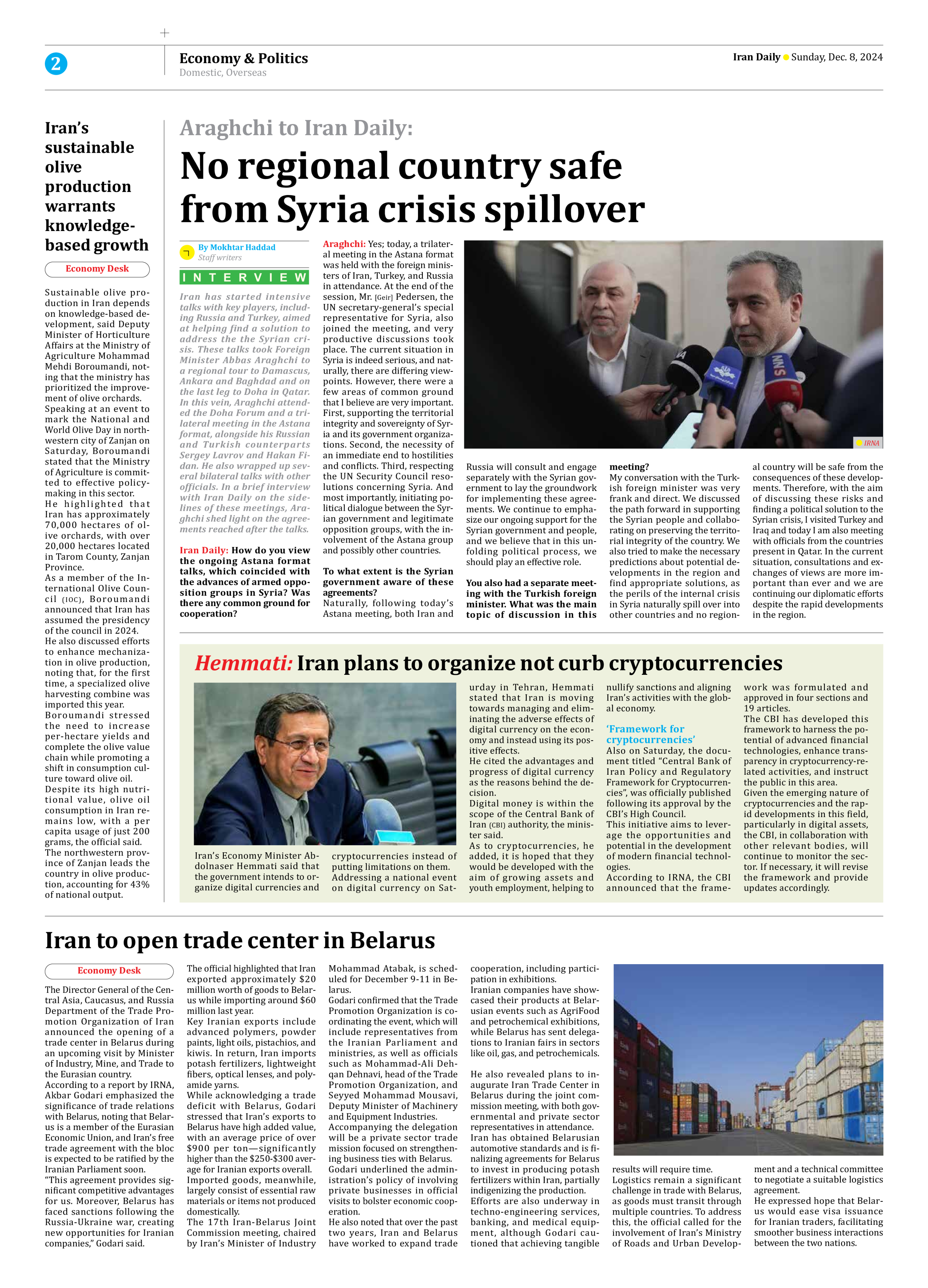
Iran to open trade center in Belarus
The Director General of the Central Asia, Caucasus, and Russia Department of the Trade Promotion Organization of Iran announced the opening of a trade center in Belarus during an upcoming visit by Minister of Industry, Mine, and Trade to the Eurasian country.
According to a report by IRNA, Akbar Godari emphasized the significance of trade relations with Belarus, noting that Belarus is a member of the Eurasian Economic Union, and Iran’s free trade agreement with the bloc is expected to be ratified by the Iranian Parliament soon.
“This agreement provides significant competitive advantages for us. Moreover, Belarus has faced sanctions following the Russia-Ukraine war, creating new opportunities for Iranian companies,” Godari said.
The official highlighted that Iran exported approximately $20 million worth of goods to Belarus while importing around $60 million last year.
Key Iranian exports include advanced polymers, powder paints, light oils, pistachios, and kiwis. In return, Iran imports potash fertilizers, lightweight fibers, optical lenses, and polyamide yarns.
While acknowledging a trade deficit with Belarus, Godari stressed that Iran’s exports to Belarus have high added value, with an average price of over $900 per ton—significantly higher than the $250-$300 average for Iranian exports overall.
Imported goods, meanwhile, largely consist of essential raw materials or items not produced domestically.
The 17th Iran-Belarus Joint Commission meeting, chaired by Iran’s Minister of Industry Mohammad Atabak, is scheduled for December 9-11 in Belarus.
Godari confirmed that the Trade Promotion Organization is coordinating the event, which will include representatives from the Iranian Parliament and ministries, as well as officials such as Mohammad-Ali Dehqan Dehnavi, head of the Trade Promotion Organization, and Seyyed Mohammad Mousavi, Deputy Minister of Machinery and Equipment Industries.
Accompanying the delegation will be a private sector trade mission focused on strengthening business ties with Belarus.
Godari underlined the administration’s policy of involving private businesses in official visits to bolster economic cooperation.
He also noted that over the past two years, Iran and Belarus have worked to expand trade cooperation, including participation in exhibitions.
Iranian companies have showcased their products at Belarusian events such as AgriFood and petrochemical exhibitions, while Belarus has sent delegations to Iranian fairs in sectors like oil, gas, and petrochemicals.
He also revealed plans to inaugurate Iran Trade Center in Belarus during the joint commission meeting, with both governmental and private sector representatives in attendance.
Iran has obtained Belarusian automotive standards and is finalizing agreements for Belarus to invest in producing potash fertilizers within Iran, partially indigenizing the production.
Efforts are also underway in techno-engineering services, banking, and medical equipment, although Godari cautioned that achieving tangible results will require time.
Logistics remain a significant challenge in trade with Belarus, as goods must transit through multiple countries. To address this, the official called for the involvement of Iran’s Ministry of Roads and Urban Development and a technical committee to negotiate a suitable logistics agreement.
He expressed hope that Belarus would ease visa issuance for Iranian traders, facilitating smoother business interactions between the two nations.







